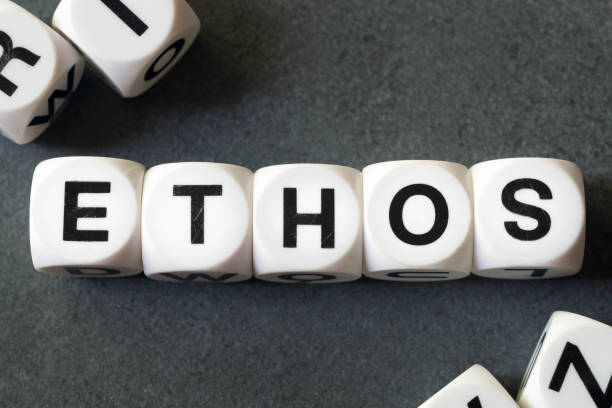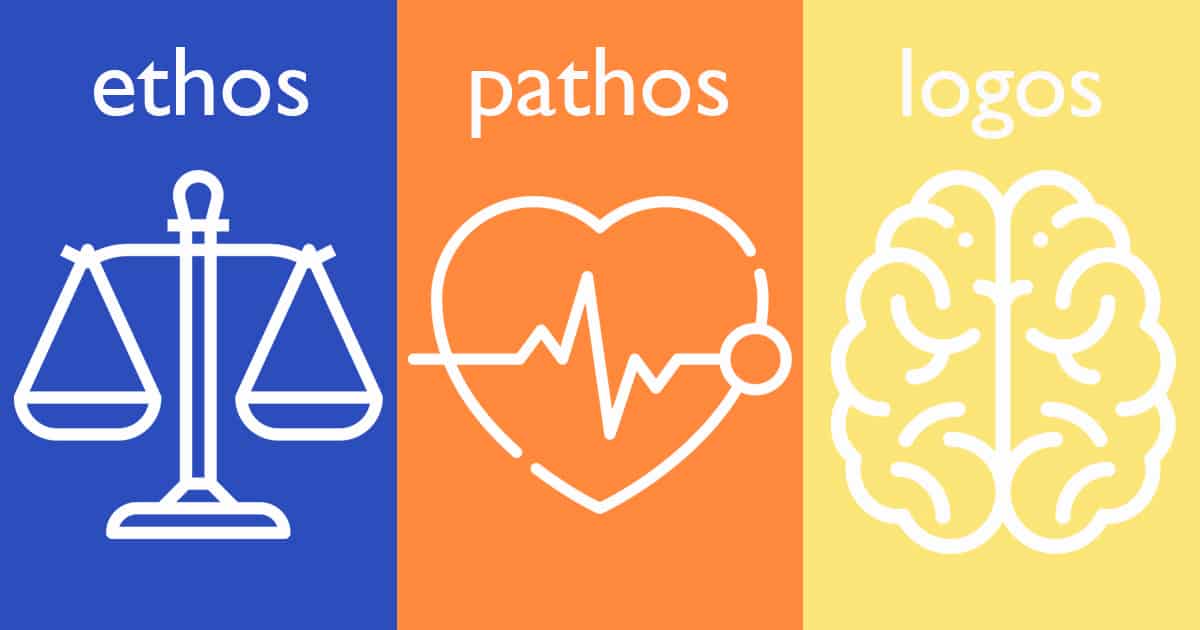We ask for advice and purchase services from people who we believe are credible.
Some go to the extent of checking past customers to ascertain the individual’s credibility. This credibility or character is referred to as ethos.
It shows that you are honorable, trustworthy, and understand your service.
Aristotle coined the word Ethos when explaining the three modes of persuasion.
Other modes include logical argument (called logos) and emotions (called pathos).
Ethos is the hardest of the three as it includes character, performance, and speaking out about your credibility.
Writers have used ethos in their manuscripts over the years.
Writers have used characters in their literary world to persuade readers by showing they are credible. This helps in the development of the plot of the story and creates success for the said characters.
Here are seven examples of ethos in literature.
1. Moby Dick by Herman Melville
Moby Dick is a novel that provides a partial history of Herm Melville in a whaling ship.
Before starting his story, the author provides a list that shows the word whale in several letters.
He also has a list of ’Extracts’ where he lists the works of literature and religious texts where the whales appeared.
This innovative use of the preface helps enhance the writer’s ethos.
It shows that he has deep knowledge of whales, whether in literature, religion, or history.
This credibility makes readers pay attention to his stories later in the novel.
2. To Kill a Mocking Bird by Harper Lee
Harper Lee shows the credibility of a character called Atticus Finch, an attorney who tries hopelessly to save a black man that had unjustly been accused of rape.
He then uses ethos to make the character appeal to the ethical emotions of the jury that is handling the case.
A combination of credibility and sheer luck helps him save the man from death.
He is able to convince the jury that it has to be authentic and look at the fact of the case and not just the emotions of its members and the fact that a black man is on trial.
3. Ordinary Girls by Jaquira Diaz
Ordinary Girls is a memoir that shows the author’s life in El Caserio Padre Rivera.
Just before writing the ‘El Caserio series, she tells a story of her background and how poor she was.
This helps build her ethos as it sets the ground to show why the stories she tells are important to her.
Readers who go through the introduction can trust that the stories have not been imagined or exaggerated but are true.
4. All the Aphrodisiacs by Cathy Park Hong
This is a free-verse poem where the writer talks of a narrator praised by her lover.
The lover says they are sexually aroused when the narrator speaks Korean. This triggers the narrator to start speaking Korean but refuses to tell the lover the meanings of the words.
However, the writer establishes her ethos by accurately translating the Korean words into English.
It shows that she understands Korean and any representations in that language are true.
Besides, she is able to show that the lover objectifies the narrator rather than loving them as he does not know the meaning of Korean words.

5. The Scarlet Letter by Nathaniel Hawthorne
In this script, the writer shows ethos as he creates a character called Hester Prynne who tries to convince others to accept their ideas.
The writer goes in-depth to show that the character is credible, honest, and hypocritical. This enables readers to get a deeper meaning of the story in question and creates a rich experience.
Hawthorne also establishes ethos when he tells readers that he is from a Puritan heritage. This society has strict rules on morality and honesty.
Therefore, he is believable when he talks of how a woman who got a child out of wedlock is treated.
6. Expert-Advertisements in Print Media
Most products that have significant health benefits come with expert endorsements to enhance their ethos.
Here is an example: a toothpaste ad may have a dentist recommend the product and explain how the product protects the teeth.
Such an ad is more believable than when the company uses a random person to explain how the product works or improves dental health.
7. The Promised Land by Barack Obama
Barack Obama’s bestseller, The Promised Land, talks of his experiences as the president of the United States for ten years.
He speaks of his interactions with other world leaders, decisions he was forced to take on different issues, and his opinion on the future of the country.
His position as the president establishes his ethos, making all his stories believable. Besides, his background in law makes his arguments on matters of policy solid and trustworthy.
Parting Thoughts
You have to give people a reason to believe in your stories.
People look at your background, experience, interaction with the subject matter, and verifiable evidence that you know what you are talking about.
In literature, writers use different ways to establish their ethos and make their stories believable.
Look around for a favorite book, novel, and magazine and check how ethos is used in literature.

